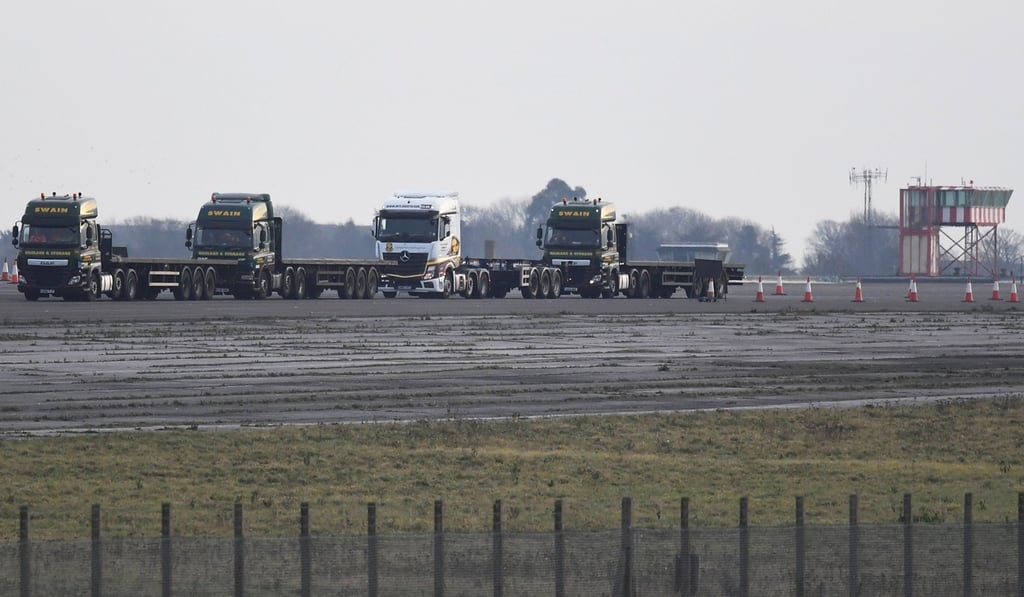UK carries out ‘waste of time’ tests to see if trucks will overload roads after a no-deal Brexit
- Officials say 87 lorries are driving from a disused airport in Kent to one of Britain’s busiest ports to see whether the current systems can handle it
- But drivers involved in the emergency traffic system rehearsal complained that it was ‘not what it will be like’ and ‘80 trucks isn’t testing the system’

Britain began rehearsals on Monday for the upheaval of a no-deal Brexit by lining up dozens of trucks at a little-used airport for a trip towards the UK’s most important trading gateway to continental Europe. But some of the lorry drivers complained the exercise was “a waste of time”.
With the British parliament deadlocked, the ultimate destination of the Brexit project is unclear, with possible outcomes ranging from a disorderly departure with no deal to another referendum on European Union membership.

Prime Minister Theresa May is trying to force her Brexit deal through parliament but if it is rejected then business chiefs and investors fear the world’s fifth-largest economy will leave without a deal on March 29.
“It’s still hard to see any upside to Brexit,” said Mike Hawes, chief executive of the Society of Motor Manufacturers and Traders (SMMT), which said new car sales in 2018 fell at their fastest rate since the global financial crisis a decade ago. “Everyone recognises that Brexit is an existential threat to the UK automotive industry and we hope a practical solution will prevail.”
He called for lawmakers to back May’s deal to guarantee a transition period.